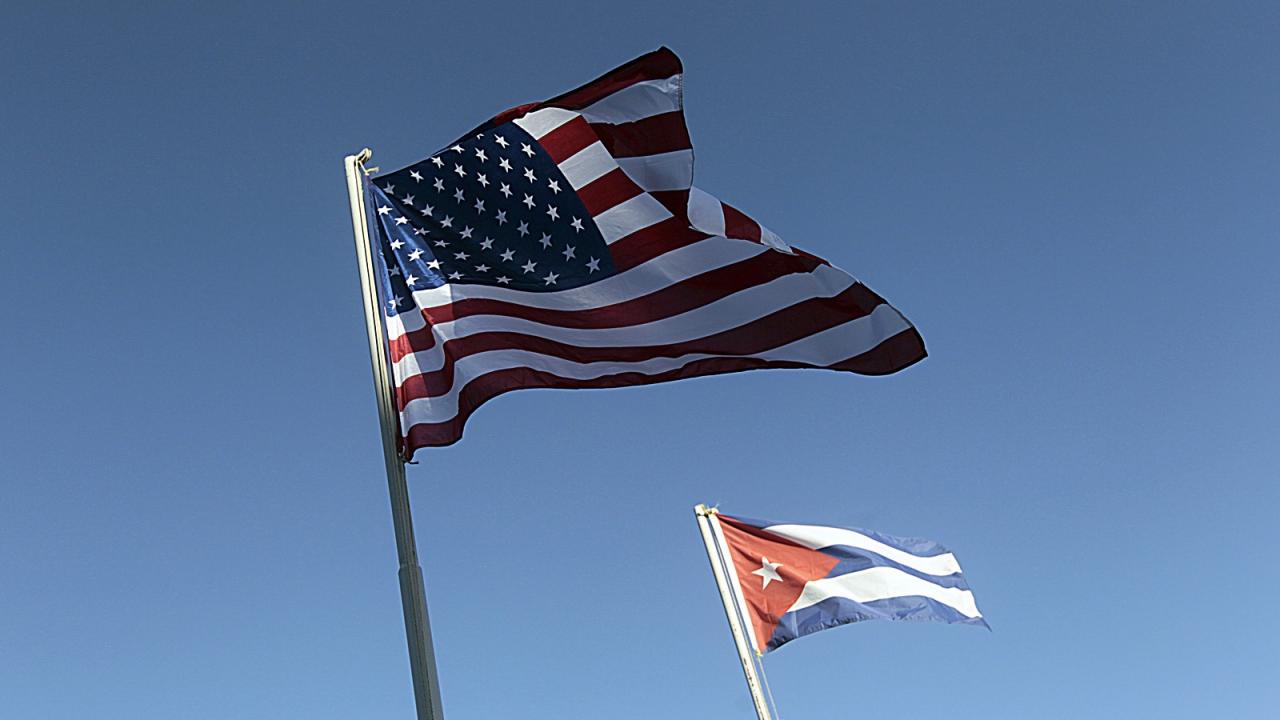The Biden Administration has announced a major shift in U.S. policy towards Cuba. Opinions and stances aside, this shift is a fact, so it is up to the actors affected to adjust their positions: Cuban society in general, civil society and dissidents, in particular; the regime of Miguel Díaz-Canel, and the U.S. Government itself.
Given the new scenario, which policy to apply to the Cuban dictatorship —Obama's "thaw" or Trump's sanctions, extreme versions of the historic Democratic and Republican approaches— should not center the debate. Both models have achievements and drawbacks. There is no way to exert pressure on the regime that does not affect the Cuban population, and there is no way to favor the Cuban population that does not favor the regime. Therefore, it would be more beneficial to evaluate this political turn from a pragmatic point of view, as it will bring about a reality that will have to be dealt with.
In this regard, while laying down concrete conditions vis-à-vis the Venezuelan and Nicaraguan regimes (progress towards free and democratic elections for the former, and the release of political prisoners, and no more using migration as a weapon for the latter) the US has not made any specific and explicit demands of Díaz-Canel, who has more than 1,000 political prisoners in jail. In this case, it has turned to a more generic approach, speaking of the "unprecedented humanitarian crisis" suffered by Cuba, and of a policy that "will continue to focus on empowering the Cuban people to help them create a future free of repression and suffering."
Given the Cuban reality, the White House would do well to issue specific conditions for Havana, of the kind it has transmitted to Caracas and Managua, including the release of political prisoners and an end to repression, which would allow the measures announced to move forward. Such conditions applied to the Díaz-Canel regime would accord with the clarity of the pro-democracy message thus far articulated by the Biden Administration —far removed from the optimism and naiveté of the Obama years—. The denial of visas to 23 Cuban cheerleaders who intended to attend a side event parallel to the upcoming Summit of the Americas, for example, is a good sign, indicating that there is a willingness to pursue détente, but not to be pushovers.
Regarding the announcement of the measures, some of them are positive and others are difficult to implement, so they deserve attention.
Among the first is that the US Embassy in Havana will seek to deliver 20,000 visas to Cubans before the end of the year, in addition to taking up the 100,000 pending applications that have accumulated since 2017. Also, there is the possibility of granting Cubans multiple entry visas to US territory, and the authorization of commercial flights from that country to airports in inland Cuba, all of which would facilitate family reunification processes.
About the latter:
The elimination of the $1,000 quarterly cap on remittances —although it excludes FINCIMEX, the Cuban military's financial institution— should ensure that remittances do not end up flowing through another channel provided by GAESA, the all-powerful neo-Castroist corporation.
In turn, financial assistance to Cuban entrepreneurs by U.S. banks, payments to the private sector inside Cuba, and the use of virtual banking for those transfers, must avoid financing the heirs of the system, the administrators of a state capitalism that segregates Cubans based on their political and ideological loyalties, and that operates beholden to no institutions, and does not respect economic freedom, such that it is at the heart of corruption and social injustice in Cuba. Such assistance should proceed based on the assumption that in Cuba there is no private sector, but rather only some scenarios tolerated by the authorities, generally limited to services and artisanal jobs, without any guarantees, legal security or property rights.
Finally, the expansion of professional and educational trips to the island, as well as travel licenses allowing U.S. citizens to visit Cuba, should be conditional on lodgings at private accommodations or, at the very least, establishments not owned or managed by the military kleptocracy that in recent months, while Cubans were suffering under the worst of the Covid-19 pandemic, dedicated 45% of national investments to the Tourism sector.
In short, Cuban pro-democracy actors must quickly adapt to the new scenario and encourage the U.S. to link its concrete demands of respect for human rights in Cuba, which it is already doing, to progress in the "thaw" it has just announced. To paraphrase the chairman of Florida’s Democratic Party, policy towards Cuba is better implemented with a scalpel than a machete.
